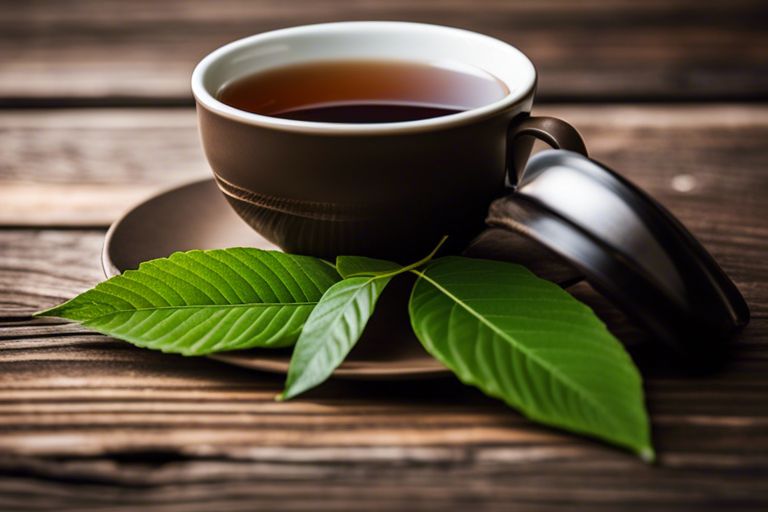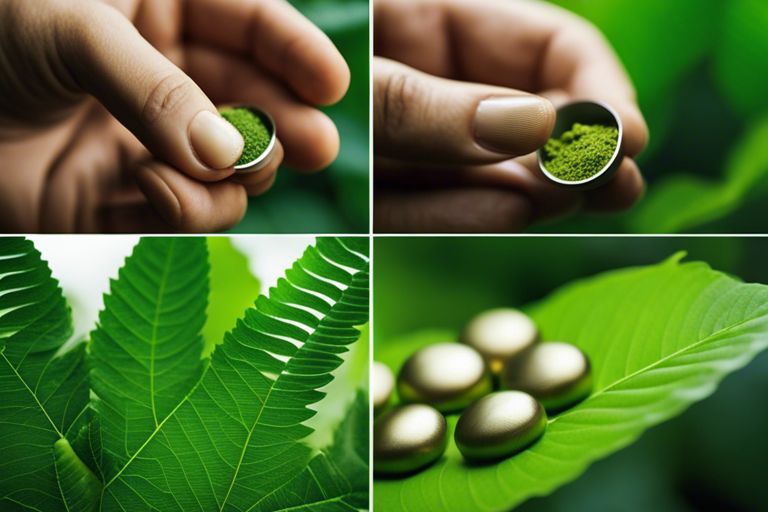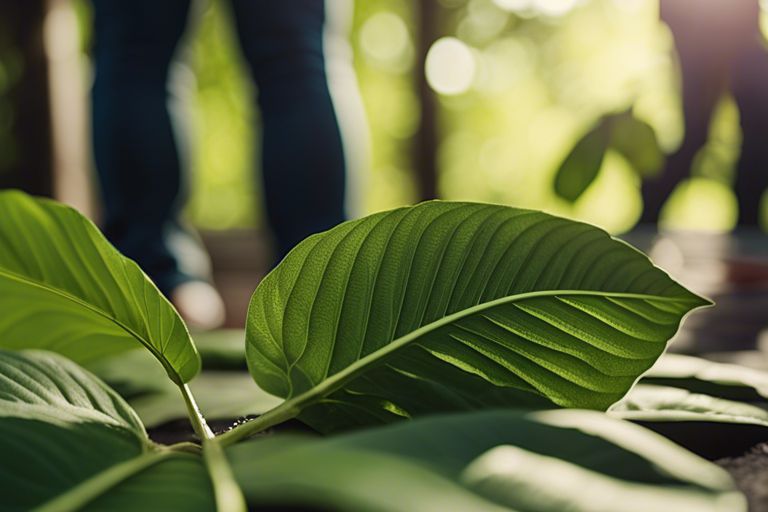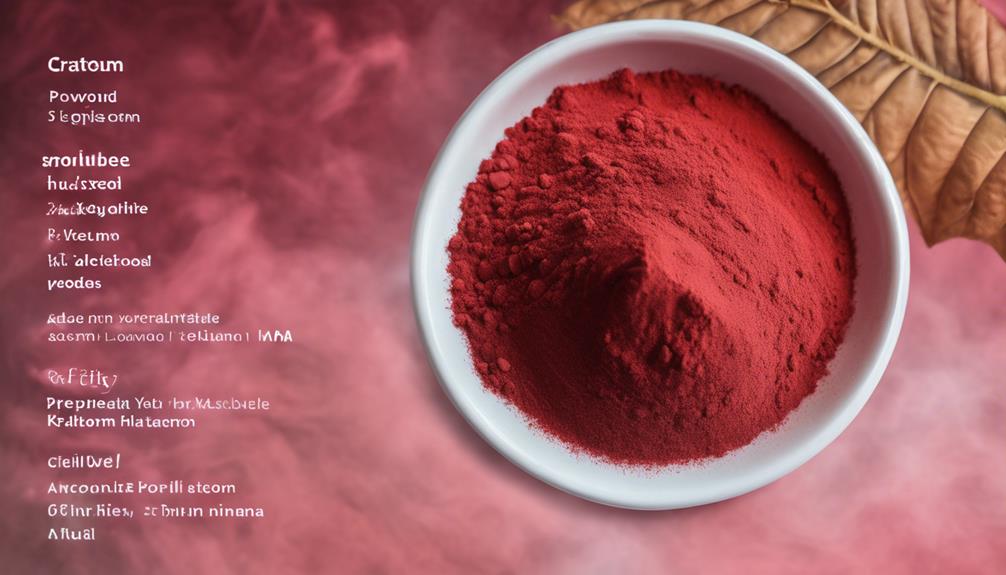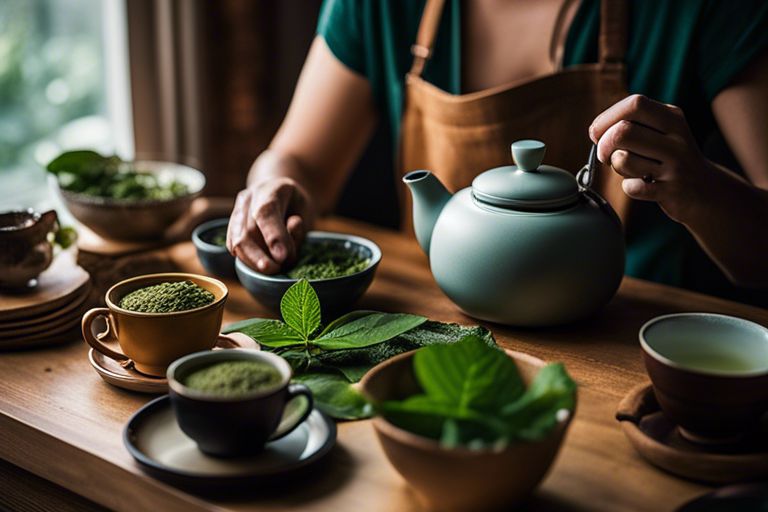You may have heard about kratom tea and its potential benefits, but do you really know what it is and how it can affect you? Kratom tea is a herbal remedy made from the leaves of the kratom tree, native to Southeast Asia. Known for its natural stimulant and pain-relieving properties, kratom has gained popularity in recent years. However, it is crucial to be aware of the potential risks and side effects associated with its consumption. Let’s research into the world of kratom tea and explore its effects.
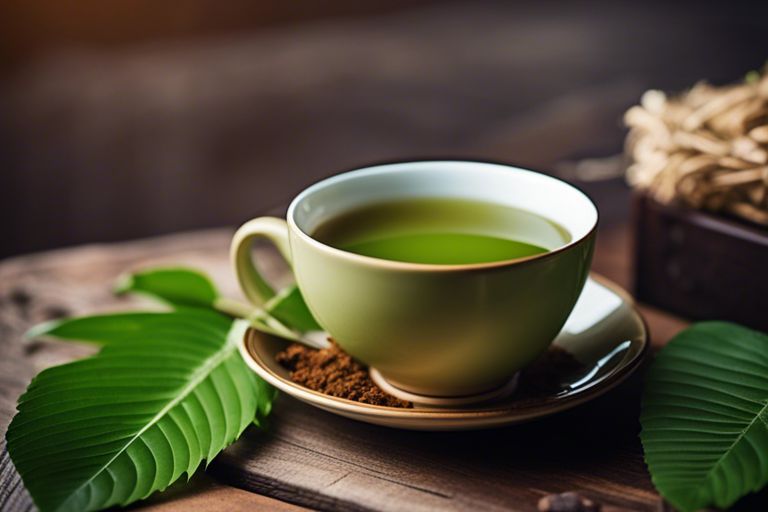
Key Takeaways:
- Kratom tea is a popular method of consumption: Kratom tea is made by brewing the leaves or powder of the kratom plant. This method is favored by many users for its convenience and ease of consumption.
- Effects of kratom tea vary: Depending on the strain and dosage, kratom tea can have different effects on individuals. These effects may include increased energy, pain relief, relaxation, or mood enhancement.
- Potential risks and regulations: While kratom tea is legal in some places, it is banned in others. It is vital to research the legality of kratom in your area and understand the potential risks and side effects associated with its consumption.
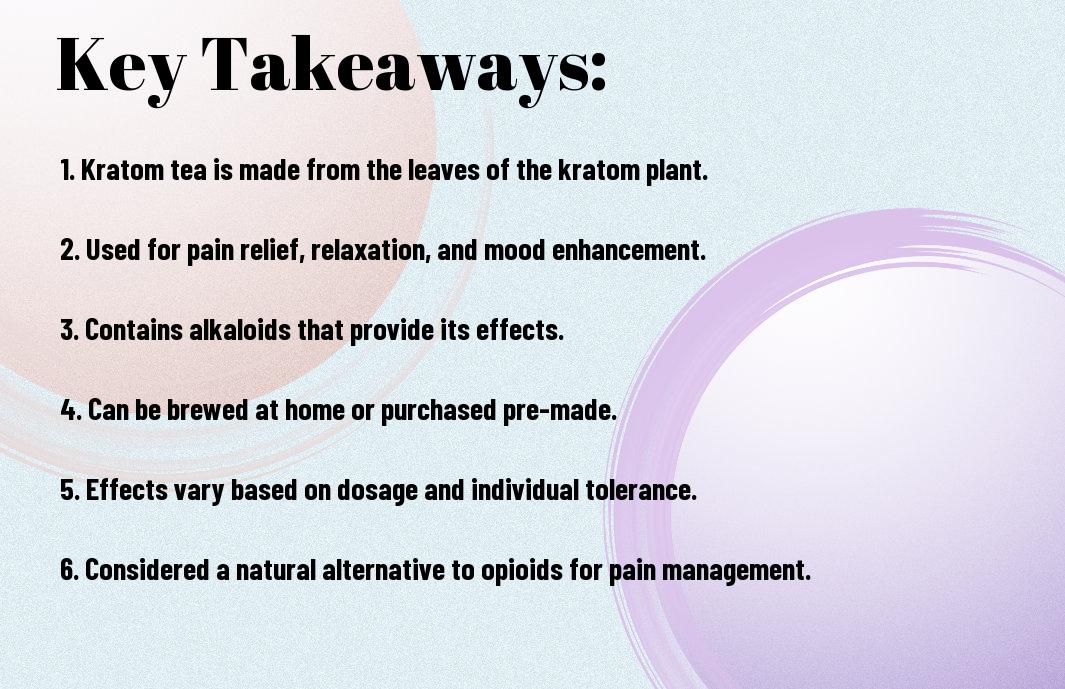
Origins and History
While kratom tea may be a relatively new trend in the Western world, its origins and history stretch back centuries in Southeast Asia. This herbal drink has been used in traditional practices for a variety of purposes, including its stimulant effects and as a natural pain reliever.
Ancient Roots
With a history dating back to ancient times, kratom leaves were chewed or brewed into tea by indigenous communities in Southeast Asia for their stimulating and pain-relieving properties. The plant’s botanical name, Mitragyna speciosa, highlights its significance in the region where it grows naturally.
Southeast Asian Traditions
Asian cultures have long valued kratom for its medicinal and ritualistic purposes. The leaves were commonly brewed into tea or chewed for their stimulating effects during long working hours in the fields, providing a natural energy boost.
Ancient traditions in countries like Thailand, Malaysia, and Indonesia have embraced kratom as a cultural symbol and a part of daily life for many individuals. While its popularity has spread globally in recent years, the Southeast Asian traditions surrounding kratom tea remain deeply rooted in history.
What is Kratom?
Any avid tea drinker or herbal enthusiast may have heard of kratom, a plant native to Southeast Asia that has gained popularity in recent years for its potential therapeutic effects. Kratom, scientifically known as Mitragyna speciosa, belongs to the coffee family and has been used traditionally for centuries for its stimulating and relaxing properties.
Botanical Background
An understanding of kratom’s botanical background is imperative in comprehending its properties and effects. Kratom trees can grow up to 80 feet tall and are characterized by dark green leaves, with the active compounds concentrated in the leaves.
Chemical Composition
An exploration of kratom’s chemical composition reveals a complex mixture of alkaloids, the most abundant of which are mitragynine and 7-hydroxymitragynine. These alkaloids interact with opioid receptors in the brain, producing stimulating and sedative effects.
For instance, mitragynine acts as a partial agonist at the mu-opioid receptors, which are involved in pain perception and regulation of mood. On the other hand, 7-hydroxymitragynine is considered to be even more potent than morphine, leading to its controversial reputation and regulatory scrutiny.
Tea Preparation Methods
Despite kratom tea being a traditional drink in Southeast Asia for centuries, there are various methods of preparing it that have evolved over time. Two main approaches include traditional brewing and modern twists.
Traditional Brewing
Brewing kratom tea traditionally involves simmering the leaves in water for an extended period to extract the alkaloids. This method is straightforward and requires only kratom leaves and water. The brewed tea is then strained and enjoyed hot or cold. It is important to note that traditional brewing may result in a stronger flavor and potency.
Modern Twists
On the other hand, modern twists on kratom tea preparation involve incorporating ingredients like honey, lemon, or even other herbs to enhance the flavor profile. Some recipes call for steeping kratom powder in hot water or mixing it with citrus juices to mask the bitter taste. Modern twists offer a more palatable way to consume kratom tea for those sensitive to its natural taste.
To ensure safe consumption, it is vital to follow reputable recipes and dosage guidelines when preparing kratom tea with both traditional and modern methods.
Benefits and Effects
Pain Relief and Relaxation
Keep in mind that one of the significant benefits of kratom tea is its potential to provide pain relief and induce a sense of relaxation. Many individuals use kratom tea as a natural remedy for various types of discomfort, whether it’s chronic pain or stress-related tension.
Energy and Focus Enhancement
For those seeking a natural solution to boost their energy levels and improve focus, kratom tea may offer a potential solution. Some users report experiencing increased alertness and mental clarity after consuming kratom tea, making it a popular choice for those looking to enhance productivity.
Benefits
To further emphasize the benefits of kratom tea for energy and focus enhancement, it’s necessary to note that some individuals prefer this natural alternative over traditional stimulants due to its perceived lower risk of jitteriness and crash.
Mood and Anxiety Support
To explore the potential benefits of kratom tea for mood regulation and anxiety support, it’s worth noting that some users find relief from symptoms of anxiety and depression after consuming this herbal brew. The alkaloids present in kratom may interact with brain receptors to promote a sense of well-being and calmness.
On
To probe deeper into the topic of mood and anxiety support, it’s important to highlight that while some individuals find kratom tea beneficial for managing their mental health, others may experience adverse effects if consumed in excess. It’s crucial to use kratom responsibly and consult with a healthcare professional if you have any underlying conditions.
Potential Risks and Side Effects
Now, let’s research into some of the potential risks and side effects associated with kratom tea consumption. It’s important to be aware of these factors before incorporating it into your routine, to ensure a safe and informed experience.
Interactions and Contraindications
Side effects of kratom tea consumption may include interactions with certain medications and existing health conditions. It is crucial to consult with a healthcare provider before using kratom if you are taking medications or have medical concerns. Interactions with substances like alcohol or opioids can also be dangerous and should be avoided.
Addiction and Dependence Concerns
For individuals using kratom tea regularly, there is a potential risk of developing addiction and dependence. Kratom contains alkaloids that can act on the brain’s opioid receptors, leading to addictive behaviors. It’s important to monitor your usage and be aware of any signs of dependence.
For those already struggling with substance abuse issues, kratom tea may pose a higher risk of addiction. The stimulating and sedative effects of kratom can be habit-forming, leading to withdrawal symptoms when use is discontinued.
Legal Status and Regulation
Many countries around the world have varying regulations when it comes to the legality of kratom.
Global Perspective
One of the most common regulations is that kratom is classified as a controlled substance due to its psychoactive properties. Some countries have completely banned the plant, while others have specific laws dictating its use and distribution.
Regional Variations
One interesting aspect of kratom regulation is the regional variations within countries. In the United States, for example, kratom is legal at the federal level but banned in several states and municipalities. This discrepancy has led to debates about the potential benefits and dangers of kratom consumption.
Global regulations often focus on the potential dangers of kratom, including its addictive nature and possible side effects. However, many advocates argue for the positive benefits of kratom, such as pain relief and mood enhancement, leading to ongoing discussions about its legal status.
Final Words
Taking this into account, it is evident that kratom tea is a popular herbal remedy with potential benefits and risks. As highlighted in the article What Is Kratom Tea, and Is It Safe?, understanding its origins, uses, and potential side effects is crucial for those interested in trying it. Always consult with a healthcare provider before incorporating kratom tea into your wellness routine, and be mindful of dosage and quality when using this herbal supplement.
FAQ
Q: What is kratom tea?
A: Kratom tea is a traditional Southeast Asian beverage made from the leaves of the kratom tree, scientifically known as Mitragyna speciosa. The leaves are typically brewed in hot water to extract the alkaloids present in the plant, which may have various effects on the body.
Q: How is kratom tea prepared?
A: To prepare kratom tea, the leaves are either steeped in hot water or boiled to extract the alkaloids. Some people add sweeteners or flavorings to improve the taste. The tea is then strained before being consumed.
Q: What are the effects of kratom tea?
A: Kratom tea is believed to have stimulating and sedative effects, depending on the strain and dosage used. Some users report increased energy levels, pain relief, improved focus, and relaxation after consuming kratom tea.
Q: Is kratom tea legal?
A: The legal status of kratom and kratom products, including kratom tea, varies by country and state. It is important to research and understand the laws and regulations regarding kratom in your region before purchasing or consuming it.
Q: Are there any potential risks or side effects of consuming kratom tea?
A: While kratom tea is generally considered safe when consumed in moderation, it can have side effects such as nausea, dizziness, constipation, and dependency with long-term use. It is important to use kratom responsibly and consult with a healthcare professional if you have any concerns.
